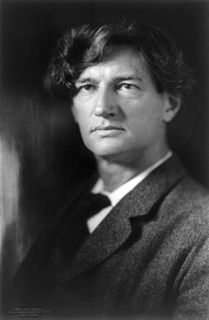A Quote by Ambrose Bierce
PROPERTY, n. Any material thing, having no particular value, that may be held by A against the cupidity of B. Whatever gratifies the passion for possession in one and disappoints it in all others. The object of man's brief rapacity and long indifference.
Related Quotes
In the latter sense, a man has a property in his opinions and the free communication of them. He has a property of peculiar value in his religious opinions, and in the profession and practice dictated by them. He has an equal property in the free use of his faculties and free choice of the objects on which to employ them. In a word, as a man is said to have a right to his property, he may be equally said to have a property in his rights.
No one may threaten or commit violence ('aggress') against another man's person or property. Violence may be employed only against the man who commits such violence; that is, only defensively against the aggressive violence of another. In short, no violence may be employed against a non-aggressor. Here is the fundamental rule from which can be deduced the entire corpus of libertarian theory.
While it is undeniable that many have been driven to immorality and crime by the need to survive, it is equally evident that the possession of a significant surplus of material goods has never been a guarantee against covetousness, rapacity and the infinite variety of vice and pain which spring from such passions. Indeed, it could be argued that the unrelenting compulsion of those who already have much to acquire even more has generated greater injustice, immorality and wretchedness than the cumulative effect of the struggles of the severely underprivileged to better their lot.
In the world of the superheroes, everything had value, potential, mystery. Any person, thing, or object could be drafted into service in the struggle against darkness and evil - remade as a weapon or a warrior or a superhero. Even a little bee named Michael - after God's own avenging angel - could pitch in to win the battle against wickedness.
The idea that the object of constitutions is not to confirm the predominance of any interest, but to prevent it; to preserve with equal care the independence of labour and the security of property; to make the rich safe against envy, and the poor against oppression, marks the highest level attained by the statesmanship of Greece.































